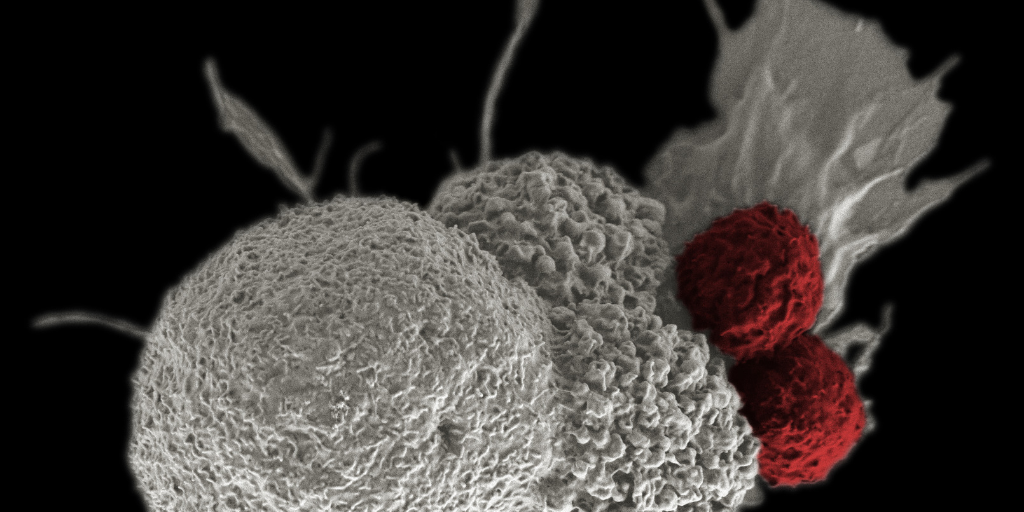CAR T-Cell Therapy Covered by Medicare, but Still Inadequately Reimbursed
ASGCT Staff - August 14, 2019
An announcement that the Centers for Medicare & Medicaid Services will cover CAR T-cell therapy is welcome news, but ASGCT remains concerned about reimbursement levels for CAR T-cell therapies for Medicare beneficiaries provided in the inpatient setting.

In August 2019, the Centers for Medicare & Medicaid Services (CMS) released both its inpatient prospective payment system (IPPS) final rule for 2020 and finalized its decision memo on the CAR T-cell therapy national coverage analysis. ASGCT commends CMS’s final decision memo on coverage, while retaining concern over reimbursement levels in the inpatient setting, for CAR T-cell therapy.
Last week’s final decision memo contained most of ASGCT’s recommendations, including that CMS did not finalize its proposal for coverage with evidence development (CED). By instead issuing a national coverage determination (NCD) for CAR T-cell therapies, the additional administrative burden of a CED on providers is prevented, which could have resulted in patient access issues if providers had opted not to provide the therapy to Medicare beneficiaries.
The NCD coverage criteria reflect incorporation of two additional changes that ASGCT recommended into the final decision memo. First, the final rule indicates that CMS will cover autologous treatment for cancer with T cells expressing at least one chimeric antigen receptor (CAR), with the elimination of the proposed patient eligibility requirement that a patient have relapsed or refractory cancer, which may assist with access to future first-line indications.
In addition, the therapy will be covered when administered at healthcare facilities enrolled in the FDA risk evaluation and mitigation strategies (REMS) and used for a medically accepted indication. The term “hospital” was broadened to include all facilities that meet required standards for patient safety, as ASGCT recommended.
While the CMS decision on coverage was welcome news last week, ASGCT remains concerned about reimbursement levels for CAR T-cell therapies for Medicare beneficiaries provided in the inpatient setting. In the IPPS final rule released on August 2, CMS did take a positive step by increasing the new technology add-on payment (NTAP) cap from 50 percent to 65 percent for all new technologies. However, as stated in ASGCT comments to CMS, this NTAP cap could still leave hospitals that markup minimally with losses of over $300,000 per case. Another concern is that CMS will continue to include clinical trials cases in the data collection for rate setting of a separate new MS-DRG in 2021, which could result in the creation of an artificially low MS-DRG since these cases only include service charges.
While patients are only responsible for a maximum payment of $1,340 for CAR T-cell therapy under Medicare, the risk of large losses to providers has caused some hospitals that had planned to become authorized treatment centers to not yet provide the therapy. Such losses may also be unsustainable for current providers. The limitation in the number of treatment centers willing to take these risks could create access issues for seriously ill cancer patients. ASGCT will continue to advocate for maximal reimbursement levels for CAR T-cell therapies to allow optimal patient access to these therapies.*
*ASGCT's CAR T-cell therapy advocacy efforts do not imply endorsement of any individual product pricing decisions.
Related Articles
Payment Policy
ASGCT Supports CMS Steps to Adapt Payment Policies
ASGCT Staff - July 24, 2020
Advocacy
Advocacy Reflects on Accomplishments and Looks Ahead to Future Efforts
ASGCT Staff - January 20, 2020
(From left) Michael C. Burgess, MD (R-TX) (with Matthew Porteus, M.D., Ph.D., and Jennelle Stephenson), and Danny K. Davis (D-IL), gave remarks emphasizing the importance of supporting sickle cell disease research.
Advocacy
ASGCT Co-Hosts Second Congressional Briefing on Sickle Cell Disease
ASGCT Staff - November 26, 2019
Advocacy
ASGCT Policy Summit Highlights Patient and Advocate Perspectives
ASGCT Staff - October 14, 2019